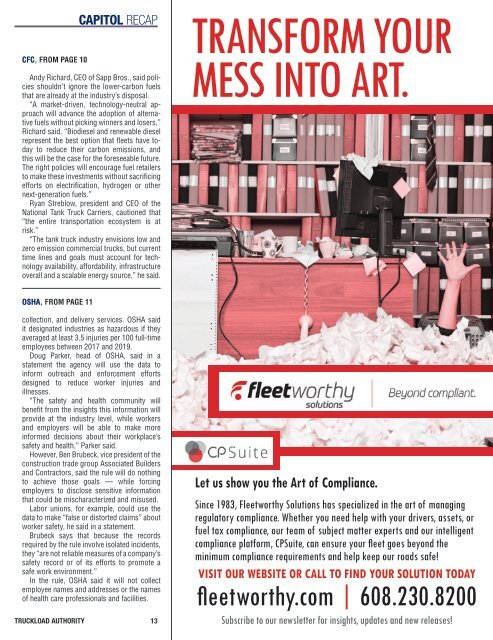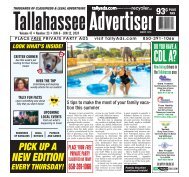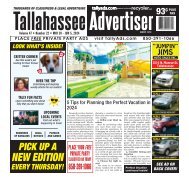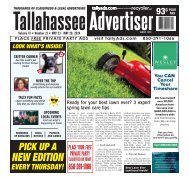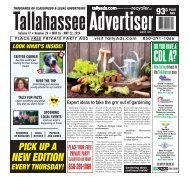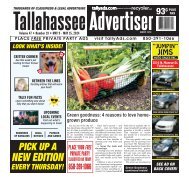TLA62_AllPages
Create successful ePaper yourself
Turn your PDF publications into a flip-book with our unique Google optimized e-Paper software.
CFC, FROM PAGE 10<br />
CAPITOL recap<br />
Andy Richard, CEO of Sapp Bros., said policies<br />
shouldn’t ignore the lower-carbon fuels<br />
that are already at the industry’s disposal.<br />
“A market-driven, technology-neutral approach<br />
will advance the adoption of alternative<br />
fuels without picking winners and losers,”<br />
Richard said. “Biodiesel and renewable diesel<br />
represent the best option that fleets have today<br />
to reduce their carbon emissions, and<br />
this will be the case for the foreseeable future.<br />
The right policies will encourage fuel retailers<br />
to make these investments without sacrificing<br />
efforts on electrification, hydrogen or other<br />
next-generation fuels.”<br />
Ryan Streblow, president and CEO of the<br />
National Tank Truck Carriers, cautioned that<br />
“the entire transportation ecosystem is at<br />
risk.”<br />
“The tank truck industry envisions low and<br />
zero emission commercial trucks, but current<br />
time lines and goals must account for technology<br />
availability, affordability, infrastructure<br />
overall and a scalable energy source,” he said.<br />
TRANSFORM YOUR<br />
MESS INTO ART.<br />
OSHA, FROM PAGE 11<br />
collection, and delivery services. OSHA said<br />
it designated industries as hazardous if they<br />
averaged at least 3.5 injuries per 100 full-time<br />
employees between 2017 and 2019.<br />
Doug Parker, head of OSHA, said in a<br />
statement the agency will use the data to<br />
inform outreach and enforcement efforts<br />
designed to reduce worker injuries and<br />
illnesses.<br />
“The safety and health community will<br />
benefit from the insights this information will<br />
provide at the industry level, while workers<br />
and employers will be able to make more<br />
informed decisions about their workplace’s<br />
safety and health,” Parker said.<br />
However, Ben Brubeck, vice president of the<br />
construction trade group Associated Builders<br />
and Contractors, said the rule will do nothing<br />
to achieve those goals — while forcing<br />
employers to disclose sensitive information<br />
that could be mischaracterized and misused.<br />
Labor unions, for example, could use the<br />
data to make “false or distorted claims” about<br />
worker safety, he said in a statement.<br />
Brubeck says that because the records<br />
required by the rule involve isolated incidents,<br />
they “are not reliable measures of a company’s<br />
safety record or of its efforts to promote a<br />
safe work environment.”<br />
In the rule, OSHA said it will not collect<br />
employee names and addresses or the names<br />
of health care professionals and facilities.<br />
Truckload Authority 13<br />
Let us show you the Art of Compliance.<br />
Since 1983, Fleetworthy Solutions has specialized in the art of managing<br />
regulatory compliance. Whether you need help with your drivers, assets, or<br />
fuel tax compliance, our team of subject matter experts and our intelligent<br />
compliance platform, CPSuite, can ensure your fleet goes beyond the<br />
minimum compliance requirements and help keep our roads safe!<br />
VISIT OUR WEBSITE OR CALL TO FIND YOUR SOLUTION TODAY<br />
fleetworthy.com | 608.230.8200<br />
Subscribe to our newsletter for insights, updates and new releases!


